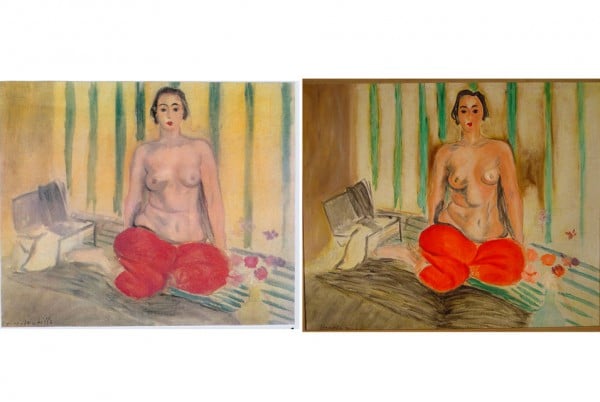Law & Politics
Stolen $3 Million Matisse Returns to Venezuela


Artnet News

A painting of a partially-nude woman by Henri Matisse was finally returned to Venezuela on Monday. The work, titled Odalisque in Red Pants (Odalisque à la culotte rouge) (1925), was missing for well over a decade, having been stolen from the Museo de Arte Contemporaneo de Caracas (Caracas Museum of Contemporary Art). Officials remain unsure of when exactly the theft took place, thus far having only been able to confirm that the work was replaced with a fake sometime between 1999 and 2002, according to the AFP.
The painting, which is estimated to be worth $3 million, was recovered by the FBI in 2012. A couple, Pedro Antonio Marcuello Guzman and Maria Martha Elisa Ornelas Lazo, attempted to sell the Matisse to undercover agents for $740,000 in a Miami Hotel, according to the AP. They were subsequently convicted, Guzman having admitted that the painting was stolen when pitching the sale.
Joel Espinoza of the Venezuela attorney general’s office told the AFP, “The work is in extraordinary condition, with only slight imperfections on the edges, but it is fine.” It arrived in a white crate late on Monday and is currently undergoing a 72-hour acclimatization process before going back on view in the museum. Venezuelan culture minister Fidel Barbario called the return, “another achievement of the Bolivarian revolution, of a government in touch with the arts,” referring to the name of the regime founded in 1999 with the election of late-president Hugo Chávez.
The Museo de Arte Contemporaneo de Caracas was founded in 1973. According to a report by the Guardian at the time of the thieves’ arrest, the discovery of the fake Matisse—a not particularly good fake at that, with blatant details such as the color of a vase in its foreground varying from the original—spawned an extensive inventory investigation. According to an independent auditor at the time, 14 works were missing from the institution. However, Adriana Meneses Imber, whose mother, the museum’s founder, had left the institution just before the audit took place, said that its findings were, “completely untrue.”